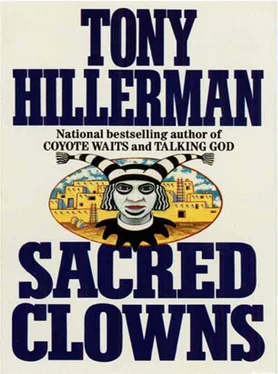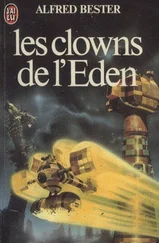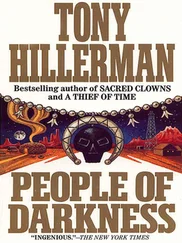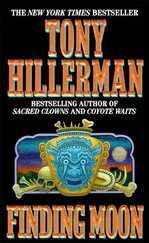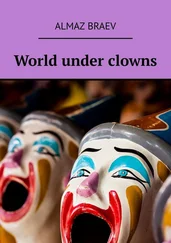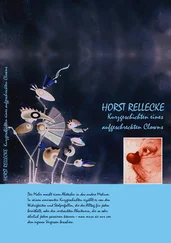Leaphorn handed the paper to Toddy. “It looks like Dorsey got cheated out of his last two hundred,” he said.
There was nothing else related to the cane in either of the baskets. The contents of the file cabinet dealt mostly with classwork, warranties on power tools, operating instructions, and orders for supplies. Leaphorn checked through those, sorting out invoices from Albuquerque Specialty Woods. An invoice on a September 13 shipment listed “One ebony, 2 x 2 x 36.”
He showed it to Toddy. “Here’s when he bought the wood,” Leaphorn said.
Toddy grunted.
There were other Specialty Woods invoices in the file. Leaphorn checked through them, backward in time, in his advertised mode of just looking without knowing for what.
“Be damned,” he said. “Look at this.”
“Well, now,” Toddy said. “It looks like Mr. Dorsey was in the cane-making business.”
The form principally covered an order of walnut, mahogany, and clear white pine. But the last item read, “No. 1 ebony blank 2 x 2 x 36.”
Leaphorn looked at the date. The shipment had been made more than two years ago.
No more ebony purchases showed up in the other invoices. Leaphorn found the “Misc. File” folder in the back of the bottom drawer. In it was a thick packet of letters secured with a rubber band, copies of correspondence about an overdue VISA card payment, notes that seemed to deal with Christmas presents, and assorted sheets of paper bearing notes. One bore a neat pencil sketch of a Lincoln Cane.
Leaphorn extracted it. On this sheet the instructions had been typed. They gave dimensions, details of the finish of the silver head, of how the cast-iron tip should be ground. The dimensions of the letters to form the legend were specified in millimeters. And now the legend read, A. LINCOLN PRES. U.S.A. 1863 POJOAQUE.
Pojoaque. Leaphorn had been there long ago. A tiny place beside the highway north of Santa Fe. Leaphorn flipped through the bundle of envelopes. Thirty-seven letters, the first of them with the same return address in Fort Worth, Texas, the rest from the Veterans Administration hospital in Amarillo, and all with the name “George” above the address. They had come about a week apart at first and then less frequently. Leaphorn returned them to their hiding place in the bottom drawer.
He handed Toddy the Pojoaque Lincoln Cane sheet.
“I’d say he made two of them,” Toddy said. “And the second one he finished right on the deadline.”
“Yeah,” Leaphorn said. “That was the date, wasn’t it?”
“It was. So now we know Dorsey not only got killed. He got screwed.”
“Out of his final payment,” Leaphorn said. “That’s right. He just had twenty-something dollars in his billfold. But maybe he got paid in advance.”
Toddy shrugged. “No difference, now,” he said. “You finished here?”
“I think so,” Leaphorn said. “Has Streib released this stuff so his kinfolks can claim it? Is somebody coming after it?”
Toddy was looking at the family photograph. “I guess this one is him,” he said. “The oldest boy.” He moved from the photograph to the framed motto. “Did you read this?”
“No,” Leaphorn said.
“I think it’s out of the Bible. Maybe one of the psalms.” Toddy read it, in the voice one reserves for reciting poetry:
One thing I will ask of the Lord ,
This will I seek after :
That I may dwell in the House of the Lord
All the days of my life .
“I think it’s one of the Psalms of Solomon, or maybe it was David.”
“It’s a lot like some of the verses from our Blessing Way,” Leaphorn said. “You notice that?”
Toddy’s expression said he hadn’t. But now he did. “I see what you mean,” he said. “The House Made of Morning Mist, the House Made of Dawn.” He turned and looked at the motto. “May I always walk with beauty before me.”
“Is Dorsey’s family coming to get his stuff?” Leaphorn repeated.
“No,” Toddy said. “Nobody seems to want it. Let’s get out of here.”
FATHER HAINES had his coat on and his hat in his hand when Leaphorn tapped at his office door.
“I just wanted to know if I could borrow a telephone,” Leaphorn said. He displayed his AT amp;T calling card. “I need to make some long-distance calls.”
“How about mine?” Haines said. He pointed to his desk and glanced at his watch. “I have a meeting in Gallup, so just make yourself comfortable.”
Comfortable it was. From its looks, Haines’s chair had been made about fifty years ago and heavily used. Its seat was well-padded leather. It swiveled, and tilted, and felt generally substantial. And the Haines telephone was one of those heavy black rotary-dial jobs made back when Ma Bell ruled.
Leaphorn used it to dial information and get the number of the Clark Gallery in Santa Fe. Desmond Clark was in, and wanted to know how Leaphorn was doing, and when they were going to go deer hunting again, and why didn’t Leaphorn retire, and how his health was holding up. Past all that old-friend exchange, they came to business.
“You know all about the Lincoln Canes, I guess,” Leaphorn said. “What would one be worth to a collector, and who would buy one? Fill me in on all that.”
“That’s easy,” Clark said. “Nobody would buy one. Everybody would know it was stolen property. You couldn’t display it. Or brag about it.”
“How about the Zuni War Gods?” Leaphorn said. “Somebody bought them, knowing they had to have been stolen. And the Hopis have had lots of stuff disappear and then it turns up in collections. And-”
“Okay,” Clark said. “I see what you mean. The underground market. Let me think about it a minute.”
“Think,” Leaphorn said, and waited.
“I believe ol’ Honest Abe sent nineteen of those out during the Civil War. Eighteen or nineteen. So they’re extremely rare, and they’re extremely unusual, and they look great. Ebony and silver, you know. And everybody’s favorite national hero had them made with his name on them. So if you were a Lincoln man, or even a Civil War buff, one would be worth a ton. I’d guess bidding would start at a hundred thousand. Maybe better. But a stolen one – I don’t know. I guess dealers who know the Lincoln trade could find a buyer. My field is Native American collectibles. I wouldn’t know.”
“But you think as high as a hundred thousand?”
“If it was a legitimate sale. Certified authenticity. All that. Say, for example, Taos Pueblo decided to sell its cane. All legal and everything. I’d say that would be low. You’d have the Indian buffs and the Lincoln buffs and the Civil War crazies all competing for it. But now you’ve got to tell me why you’re asking.”
“In a minute,” Leaphorn said. “Let’s say it wasn’t a public sale. Let’s say a dealer just approached a collector and said he had acquired one and wanted an offer.”
“The collector calls the cops.”
“Let’s say he was an unscrupulous collector.”
“He still calls the cops,” Clark said. “Even quicker. He figures it’s a sting. He’s being set up.”
“Okay,” Leaphorn said. “How about another possibility. Haven’t some of those canes disappeared? Down through the generations. Got lost or something? What if-”
“Aah,” Clark said. “That opens a new can of worms. Yes. I’m no authority on these Lincoln Canes. You could find out in the library. But I think some of the pueblos don’t have them any longer. Some of them went through pretty troubled times, you know. Like little Pojoaque, and Tesuque once, and Picuris.”
“So let’s say somebody who really knows about such things gets his hands on one of those lost canes. Could he sell it?”
Читать дальше
